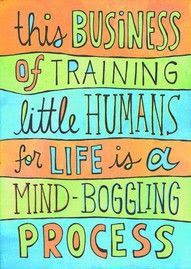I strongly believe in the importance of play at school--especially for very young children, there is no better way to discover how to make friends, learn about injustice, cope with frustrations, and make connections from the classroom to everyday life. (But really, those same lessons apply to students nearing high school graduation too!) Constructivism in education espouses the importance of learning through experience, and play-based learning fits the definition perfectly. The theory says that knowledge doesn't take root simply by listening to the facts, it's a process built on collaboration, communication, and connections.
John Dewey advocates teaching students how to "float on their own" in order to keep learning from their experiences for the rest of their lives. It's a style of teaching that requires careful observation and finesse from teachers because it gives students a large amount of independence.
Dewey's emphasis on the integration of home and school is fascinating as well, and in an age when teachers, especially public school teachers in the US, are painfully aware of difficult family situations at home, I am curious how implementing such a practice would work across the board. What if the values in the home do not complement the values taught in school? What if a child does not feel safe and secure in his or her home environment? And since there are so many ways to parent children, I suppose the best a teacher could do is provide a nurturing, respectful, loving school environment where a child knows he will always be welcome, always belong. It certainly couldn't hurt!
References
Dewey, J. (1897). My Pedagogic Creed. The School Journal. Retrieved from: https://bbweb03.spu.edu/bbcswebdav/pid-1129485-dt-content-rid-2467010_1/courses/EDU6526_27922_201562/SIS%20Session%205%20Reading%20%28Dewey%29.pdf


No comments:
Post a Comment